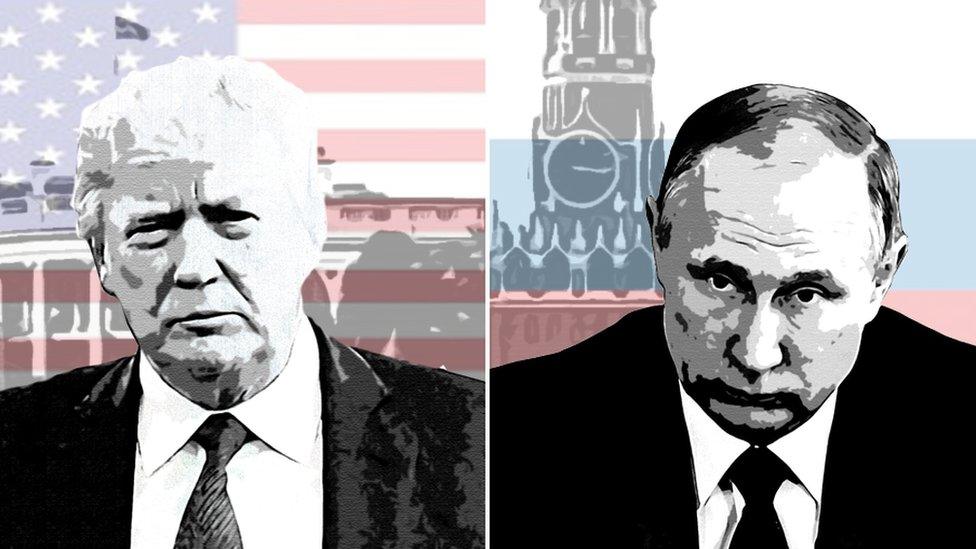US House Republicans find no proof of Trump-Russia collusion
- Published
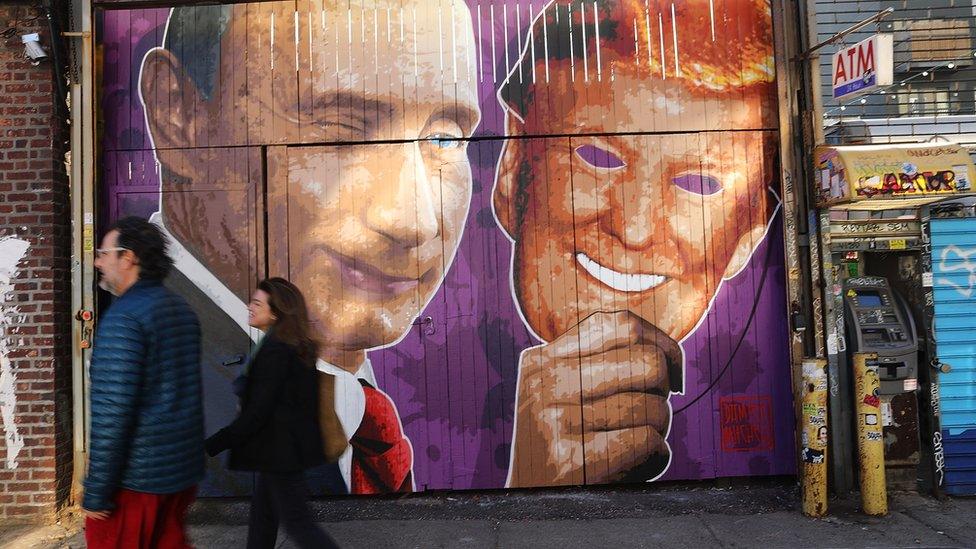
Republicans on a House panel have found no evidence of collusion between the Trump campaign and the Kremlin in the US 2016 presidential election.
Mike Conaway, who leads the inquiry, said the House Intelligence Committee agreed with US intelligence agencies that Russia interfered in the race.
But he said Republicans did not find proof that it was to sway the election in favour of President Donald Trump.
The inquiry is one of several probes looking into alleged Russian meddling.
Investigations by special counsel Robert Mueller and the Senate Intelligence Committee are ongoing.
Mr Mueller is leading a criminal investigation while the congressional inquiries serve to inform the public and make legislative recommendations.
Mr Conaway, the Texas Republican who has led the yearlong probe, announced on Monday the House committee had finished interviewing witnesses and planned to share a draft report with Democratic colleagues on Tuesday.
"The bottom line: The Russians did commit active measures against our election in '16, and we think they will do that in the future," he told reporters.
But he added: "We found no evidence that the Trump campaign or anyone associated with it colluded with the Russians."
All you need to know about the Trump-Russia investigation
The Republican conclusion breaks with an assessment by the US intelligence community last year that found Russia allegedly meddled in an effort to help Mr Trump win the presidency. Russian officials have repeatedly denied intervening in the 2016 election.
Democrats on the panel are expected to release their own report.
Adam Schiff, the ranking Democrat on the committee, called the investigation "fundamentally incomplete".
"By ending its oversight role in the only authorised investigation in the House, the Majority has placed the interests of protecting the President over protecting the country, and history will judge its actions harshly."
Mr Trump, who has denied any wrongdoing, tweeted about the House Republicans' conclusion on Monday night.
Allow X content?
This article contains content provided by X. We ask for your permission before anything is loaded, as they may be using cookies and other technologies. You may want to read X’s cookie policy, external and privacy policy, external before accepting. To view this content choose ‘accept and continue’.

Political warfare rages on
Analysis by Anthony Zurcher, BBC News
The House Intelligence Committee's investigation has been mired in partisan bickering nearly from the start. The inquiry may be drawing to a close, but the political warfare is just getting started.
Did the committee do enough to look into possible Trump campaign ties to Russian election meddling? Were there other people investigators should have spoken with or documents they should have requested?
That these are the key questions is good news for the Trump administration - an admission that no clear-cut evidence of "collusion" has been unearthed. "We just didn't look hard enough" doesn't carry as venomous a political sting.
Expect Donald Trump to regularly cite the coming full report from the committee's Republican majority as exoneration, particularly its controversial conclusion that Russian efforts to disrupt the 2016 election were not specifically aimed at helping Mr Trump.
Of course, the House Intelligence Committee doesn't have the final say in this matter. There are benefits to being first to the post, however, and the House's conclusions could be used to undermine future reports - from the Senate and independent counsel Robert Mueller.
In a nation riven by political factions, that may be enough - even in the face of any future evidence - for Mr Trump's supporters to stick by their man.

Mr Conaway said the panel had spoken to 73 witnesses and reviewed more than 300,000 pages of documents.
He said the worst the panel found was "perhaps some bad judgment, inappropriate meetings, inappropriate judgment at taking meetings", which appeared to refer to a June 2016 meeting between Trump campaign officials and a Russian lawyer that has come under scrutiny.
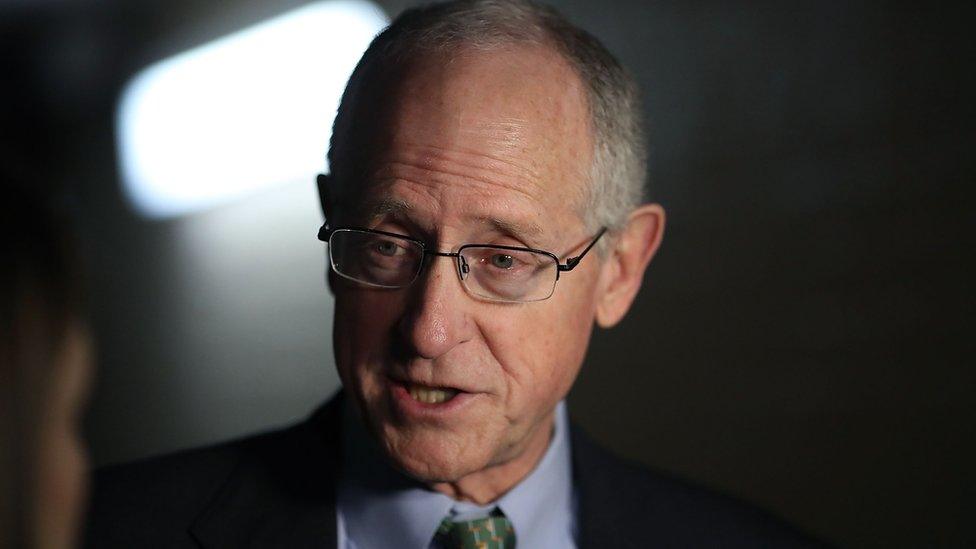
Mr Conaway says the House panel has concluded witness interviews related to the Russia probe
"But only Tom Clancy or Vince Flynn or someone else like that could take this series of inadvertent contacts with each other, or meetings or whatever, and weave that into sort of a fiction page turner, spy thriller," Mr Conaway said.
The draft report includes 25 recommendations for Congress relating to election and cyber security.
- Published12 March 2018
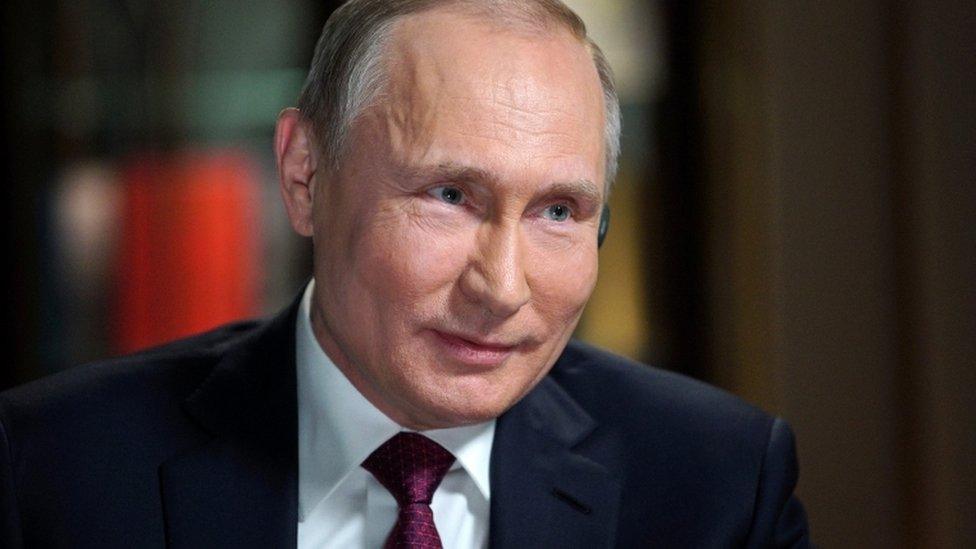
- Published24 July 2019
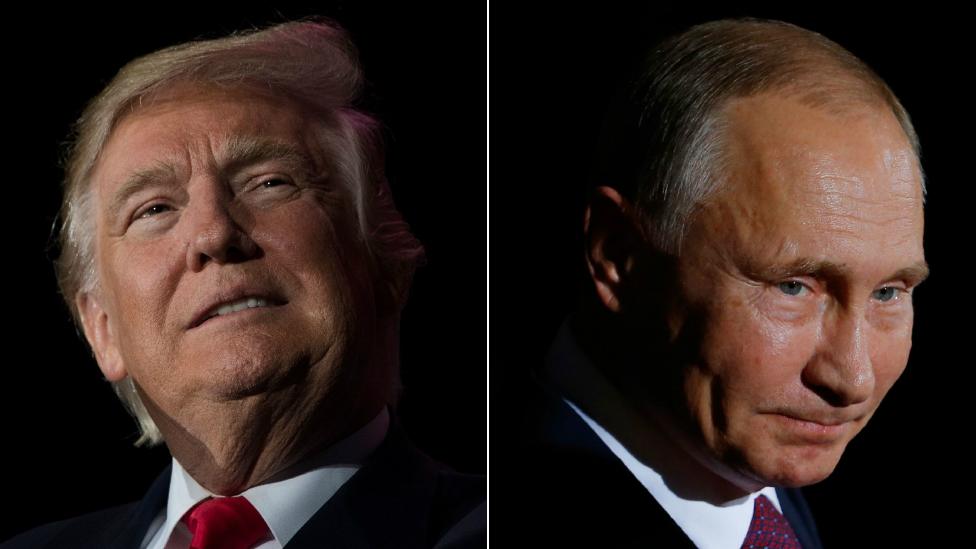
- Published25 March 2019
